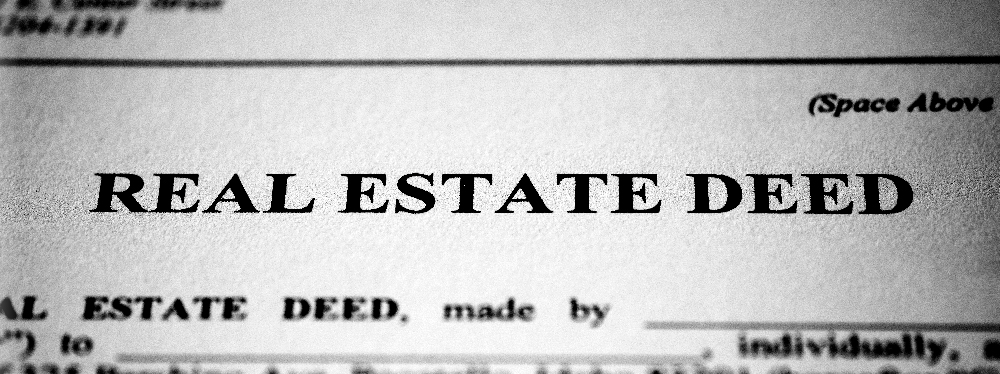Are you considering gifting a valuable asset like property to a loved one? Gifting an asset like property is a thoughtful gesture that can bring happiness and a sense of financial security. Understanding what is a gift deed can be extremely helpful when you are considering gifting your property to your family or non-family member.
A gift deed is a document for transferring the ownership of the property as a gift without any consideration. To ease the process of gifting an asset with legal compliance to a loved one, let’s explore what a gift deed is, its registration process, the charges related to it, and more.
Gift Deed Meaning
A gift deed is a document that legally allows property owners to transfer their property ownership to another person as a gift. It is a voluntary act of transferring property rights by the ‘donor’ where the recipient, or ‘donee’, does not have to pay any consideration.
Often used for gifting real estate, cash or other valuable assets, it differs from other property transfers as the transfer of ownership is done without the exchange of money.

Types of Properties that can be Gifted
The types of properties which can be gifted to any family or non-family member are as follows:
- Movable property
- Immovable property
| Points | Movable Property | Immovable Property |
| Meaning | An asset that can be transferred to another location without affecting the size or quality of the asset. | An asset that cannot be moved from one place to another and is attached to the earth. |
| Gift deed registration | It is not mandatory. | It is mandatory. |
| Examples | Jewellery, Shares | Real estate, Land |
Steps for Gift Deed Registration
The following steps need to be followed when registering a gift deed that is legally valid and enforceable:
-
Preparation of Documents Required for Gift Deed
The documents required for a gift deed registration are as follows:
- Proof of ownership provided by the donor like a title deed, asset ownership certificate or any other property documents.
- Both the donor and the donee must provide proof of identity and address, such as Aadhar cards, passports, or voter IDs.
- A copy of the sale deed if the property was acquired before through it.
- An encumbrance certificate to establish a property free from legal dues or pending liabilities.
- Two witnesses with their identity and address proofs during the registration and execution process of the gift deed.
-
Visiting the Sub-registrar Office
The local sub-registrar office accepts stamp duty to execute and attest the gift deed. The donor and donee sign all the documents and witnesses attest to it at the office itself.
-
Verification and Gift Deed Registration
The gift deed is then registered at the sub-registrar’s office after being submitted. The sub-registrar verifies all the documents and their legal compliance, after which the sub-registrar provides a copy of the registered deed as its receipt/ legal proof of the gift.
Stamp Duty and Exemptions
The stamp duty is calculated based on the state, as different states have varying stamp duties. It is applicable in the case of gifting a property without any exemption. For example, in Maharashtra, stamp duty is 5% for property worth more than Rs. 50 lakhs.
The relationship between the donor and donee does not exempt the transaction from stamp duty; however, many states in India offer a concession on transactions between family members like in Maharashtra, Delhi. When understanding, what is a gift deed, knowing these local rules becomes important and beneficial.
Advantages of Using a Gift Deed
The benefits of using a gift deed when exploring what is a gift deed is important to make the right decision when transferring the property rights to a loved one. Some advantages of using a gift deed are as follows:
-
Legal Clarity and Transfer of Ownership
A gift deed allows for an easy transfer of ownership of property or assets to loved ones without any monetary exchange. It allows for a convenient way of distributing wealth with legal clarity which is easier on the pocket and also shows the love and emotional intentions for the loved one.
-
Avoidance of Disputes and Smooth Succession Planning
Prevention of future disputes is possible with a gift deed registration since it documents the gift by the donor to a specific one. After the documentation, the property cannot be claimed in the future, which avoids future disputes. It also facilitates smoother succession planning as it is a way of passing on assets to beneficiaries to heirs as per the donor’s wishes.
-
Potential Financial Benefits
Apart from providing legal clarity and avoiding disputes, a gift deed also provides potential financial benefits as it supports the transfer of property without any monetary exchange. The stamp duty levied on the transferring of the property is reduced in many states of the country providing a reduced cost of ownership transfer as compared to other methods.
Legal Framework for Gift Deeds
Understanding some key legal frameworks is as important as knowing what is a gift deed and its importance. The relevant law for the gift deed is the Transfer of Property Act of 1882, which regulates property transferring in India. The key sections of the act are Section 122 and Section 126, which deal with the definition and revocation of the gift deed, respectively.
Some conditions for a gift deed to be legally valid are as follows:
- Pre-existing property
- Voluntary gifting without any coercion
- Willing acceptance of the gift
- No monetary exchange in the ownership transfer
Takeaway
Gift deeds are a practical and important solution for legally transferring all types of properties, whether residential or commercial, to a loved one. Thus, understanding the rules for gift deed registration, the documents required for gift deeds, and their meaning is essential. Gift deeds promise a harmonious property transfer process.
Looking for the perfect residential property to gift to your loved ones? Explore the range of residential properties at Rustomjee and discover the power of a thoughtful idea that combines the luxuries of modern living with the well-being of property owners. Don’t miss out on the opportunity and check out the range of properties to gift at Rustomjee today.
FAQs
What is a gift deed?
A gift deed is a legal document allowing property transfer to another person as a gift without any monetary consideration.
What documents are needed for a gift deed?
A gift deed requires valid identity and address proof of both donor and donee, a sale deed, proof of ownership, and an encumbrance certificate.
Is stamp duty applicable on gifted property?
Yes, a stamp duty is applicable on gift deeds. The stamp duty and exemptions vary based on the state where the property is located.
How can a gift deed be revoked?
If both the donor and the donee agree to revoke the gift deed due to any circumstance, it can be revoked.
Who can create and receive a gift deed?
A property owner can create a gift deed voluntarily to give to any family or non-family member, both adult and minor.
Is there any difference between a gift deed and a will?
While a will specifies how assets are to be distributed after the demise of the testator, a gift deed grants ownership of the property while the donor is still alive.
Can a Property be Transferred through a Gift Deed?
Yes, a property can be transferred using a gift deed, which is a legal document that allows one person (donor) to voluntarily transfer ownership of movable or immovable property (such as a house, land, jewellery, or cash) to another (donee) without payment, and requires acceptance and registration for legal validity. It is a common technique of estate planning, particularly for distributing wealth to family members, because it provides an instantaneous, transparent, and irreversible transfer once registered during the donor’s lifetime.
What is gift Deed Registration?
Gift Deed Registration is the legally required process of officially recording the voluntary transfer of property (movable or immovable) from one person (donor) to another (donee) without payment, ensuring the gift’s legal validity, enforceability, and preventing future disputes by creating a permanent, irrevocable record at a sub-registrar’s office. This process, governed by legislation such as the Transfer of Property Act of 1882, confirms ownership, making it critical for smooth succession and accurate paperwork.
Does gift Deed Need to be Registered?
Yes, a Gift Deed for immovable property must be registered under the Indian Registration Act, 1908, in order to be legally legitimate and enforceable; an unregistered one has no legal weight and might lead to conflicts; title is transferred only after registration at the sub-registrar’s office.








